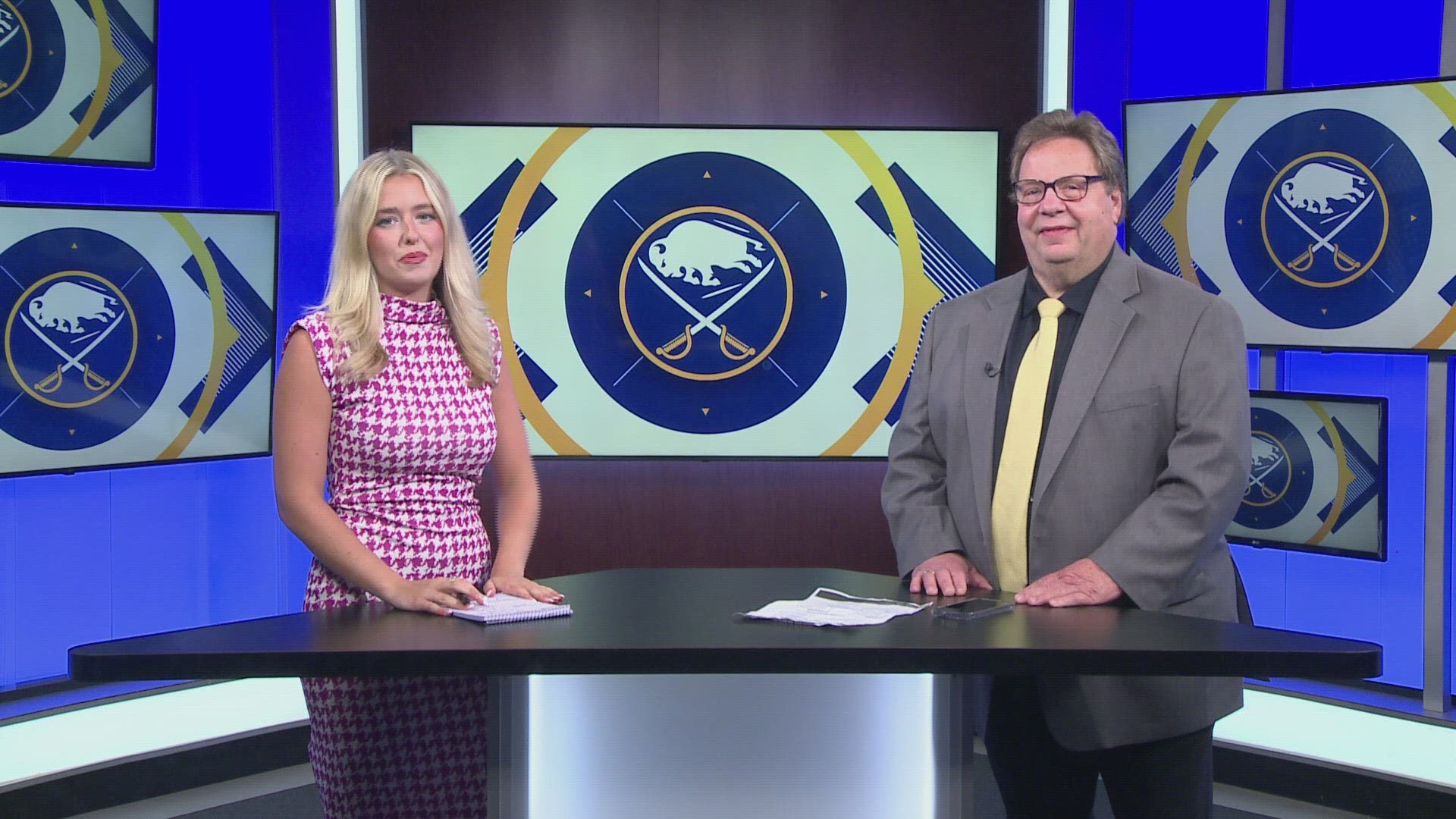PRAGUE, Czechia — Russian and Belarusian athletes must state loud and clear they condemn Russia for the war in Ukraine or be banned from next year's Paris Olympics, hockey gold medalist Dominik Hašek told The Associated Press.
Hašek, who won gold with the Czech Republic team at the 1998 Winter Olympics in Nagano, said he is certain their presence at the Paris Games would otherwise result in “a huge promotion of the Russian war.”
The Buffalo Sabres and NHL great has been a prominent and vocal critic of the International Olympic Committee’s recommendation that Russians and Belarusians compete in international competitions as neutral athletes.
“Everybody knows where those athletes are from,” Hašek told the AP in an interview. ”They would represent the aggressive, imperialistic war and the crimes and killings linked to it.”
He said it would be like supplying Russia with tanks, aircraft and ammunition.
The IOC and president Thomas Bach have shaped the definition of neutrality — not publicly supporting the war, nor being contracted to the military since the invasion began in February 2022, competing without flag, anthem or national colors — that sports governing bodies must decide how or if to apply.
“I’m convinced that we all, the whole democratic world, have to do all we can to prevent the Russian and Belarusian athletes from participating under the current conditions,” Hašek said.
IOC officials have said the Olympic body could take its own decision on the Russian athletes issue “at the appropriate time” but also said that excluding them on the basis of their passports alone was discrimination.
The 2024 Olympics open next year on July 26.
HAŠEK'S PLAN
A public and repeated condemnation of the war would be a necessary condition for the athletes to be included in the Olympics, Hašek said. Just signing a declaration with the same content wouldn’t be enough.
In exchange, democratic countries should be ready to offer them and their families asylum and safety. Hašek also floated the idea of creating team of refugees — a common practice at recent Olympics — because accepting them on Russia's terms would signal approval of the invasion.
“It’s an unbelievable promotion of the Russian war and it costs a lot of lives,” he said. “It’s necessary we stop it.”
Hašek has been invited to visit the European Parliament next month to present his views.
“I can’t predict what impact it might have but I want to do the best possible job to convince them, and then they can go on to convince others,” he said.
Hašek has been proposing the exclusion of the athletes since the start of the Russian invasion in February 2022 and appealed particularly to the NHL and the two tennis tours in an open letter to take part in it. That has not happened.
He is particularly disappointed with the reaction of the NHL and commissioner Gary Bettman.
“Of course, I’m really sad about it because the NHL is still in my heart,” said Hašek, who was known as the Dominator during his NHL career.
Hašek won six Vezina Trophies as the league’s top goalie, and twice won the Hart Trophy as the NHL's most valuable player — the only goalie to win the award twice — during a nine-year stint with the Buffalo Sabres.
He later helped the Detroit Red Wings win the Stanley Cup in 2002 and 2008 and led the Czechs to the Olympic gold in 1998. He was inducted into the Hockey Hall of Fame in 2014.
He proposed to Bettman that the NHL should pay off the contracts the Russian players signed as a way of banning them. Otherwise, he said, the NHL is partially responsible for what’s going on in Ukraine.
He said he would demand the league contributes a significant amount of money for Ukraine’s post-war renovation.
“It wouldn’t be just a few million but a large share of its income,” he said. “My goal is not to harm the NHL but to make it pay for its behavior.”
Hašek said tennis and other sports governing bodies accepting the Russians should do the same because “they support the Russian war.”
NO BOYCOTT
Hašek said he personally is not in favor of boycotting the Paris Olympics because he doesn’t want to deprive the athletes of their Olympic dreams.
He said the last chance to stop the Russians and “save a lot of lives” will be in the hands of France, noting that as host country it has the power to deny them entry.
In early June, Hašek spent five days in Ukraine, including in Kyiv and Kharkiv and in the towns of Irpin and Bucha that are recovering from a brutal occupation by Russian forces.
His aim was to express his support for the country in its fight against Russian aggression and encourage the local hockey community, including youth players, when a half of all ice rinks in the war-torn country are unavailable.
Hašek has dismissed the critics who say sports should not be mixed with politics, noting countries use their successful athletes to achieve their goals.
“That’s been common and there’s nothing wrong about it until a state is engaged in killing and murdering and the athletes become a propaganda tool for it," Hašek said. "That’s the case of the Russian and Belarusian athletes. And we have to stop it.”

